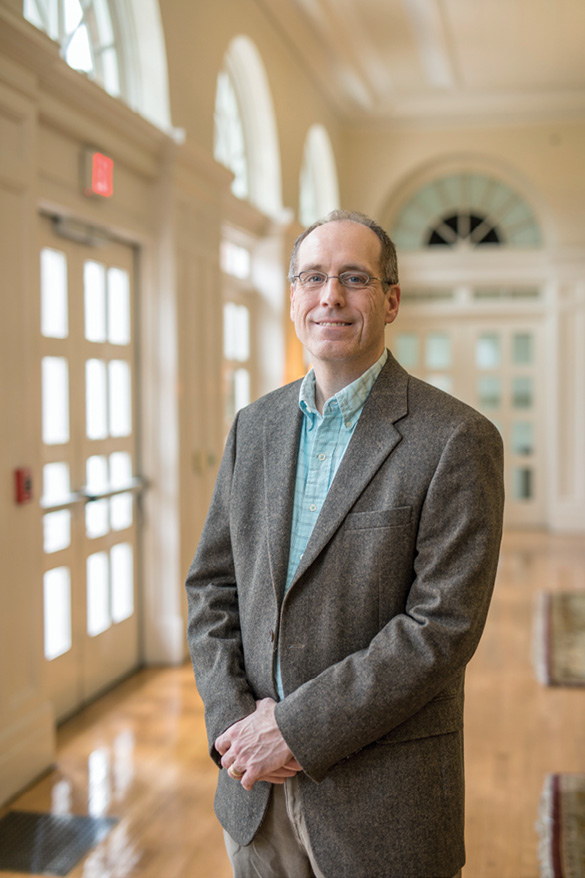
When Andrew Finch earned his M.Ed. at Peabody in the mid-1990s, he knew he wanted to do something that would make a difference in the lives of young people. He started out as a school-based therapist, working with elementary-age and middle school students. He went on to work as a school counselor at the Nashville Oasis Center’s Oasis Academy, a recovery high school, where he worked with at-risk youth battling addiction.
“My interest in recovery high schools at that time was piqued,” says Finch, now an associate professor of the practice of human and organizational development. “I was drawn to this work in part because of my own family history with addiction, and I wanted to use my training in human development counseling to find solutions.”
Finch went on to start Community High School in Nashville, one of only a handful of high schools in the country where students could learn and grow while facing their substance use issues in a safe environment. For nine years he worked as a certified counselor there, seeing positive results and young lives transformed.
Finch began pursuing a doctorate in Peabody’s leadership and policy program in fall 2000. In 2002, he co-founded the Association of Recovery Schools, the first and only professional association for educators and researchers in the field of recovery high schools. In addition, Finch served as lead developer of the first and only accreditation program for these select schools.
“What drove me was every day I saw lives being changed—teens getting back on track and recovering from their addictions,” he said. “But there was little research out there to back it up. I knew that in order for recovery high schools to be successful and to get more of them funded, there needed to be solid research on what we were doing.”
Finch joined the Peabody faculty in 2006 and soon was named lead investigator on the first rigorous outcome study of recovery high schools, a project funded by the National Institutes of Health. He also served as a co-principal investigator on the first national, multisite research study of recovery high schools, which now were beginning to pop up across the country.
In 2017 Finch released significant findings. Students who attended recovery high schools were twice as likely (59 percent versus 30 percent) to report complete abstinence from alcohol, marijuana and other drugs at the six-month follow-up.
“It also was powerful to find recovery high school students were performing well academically in their recovery schools, and that students said they felt better emotionally,” Finch says. Data are being analyzed for the next round of results, which will be released in 2018.
“Recovery schools assist young people with social emotional learning, supportive peer relationships, reduced substance use, and graduation from school,” Finch said. “With continued support by policymakers and school district leadership, this is a viable option for getting young people back on the right path.”
These days, recovery high schools are receiving heightened interest from policymakers and funders. In light of the escalating use of opioids in America, the White House’s National Drug Control Strategy and the recent Surgeon General’s report have specifically mentioned the role of recovery schools in fostering community and peer-based approaches. In fact, Finch was honored in 2015 by National Drug Control Policy Director Michael Botticelli as an Advocate for Action on behalf of the White House Office of National Drug Control Policy.
Last year Finch said in an article for U.S. News & World Report that he expects the number of recovery schools—which have been around since 1979—to grow in the next few years. He believes the number of schools will soon surpass 2007 figures, which peaked at 43 schools.
At Peabody, Finch serves as coordinator of the school counseling track in the master’s degree program in human development counseling.
By Joan Yordy Brasher
SaveSave